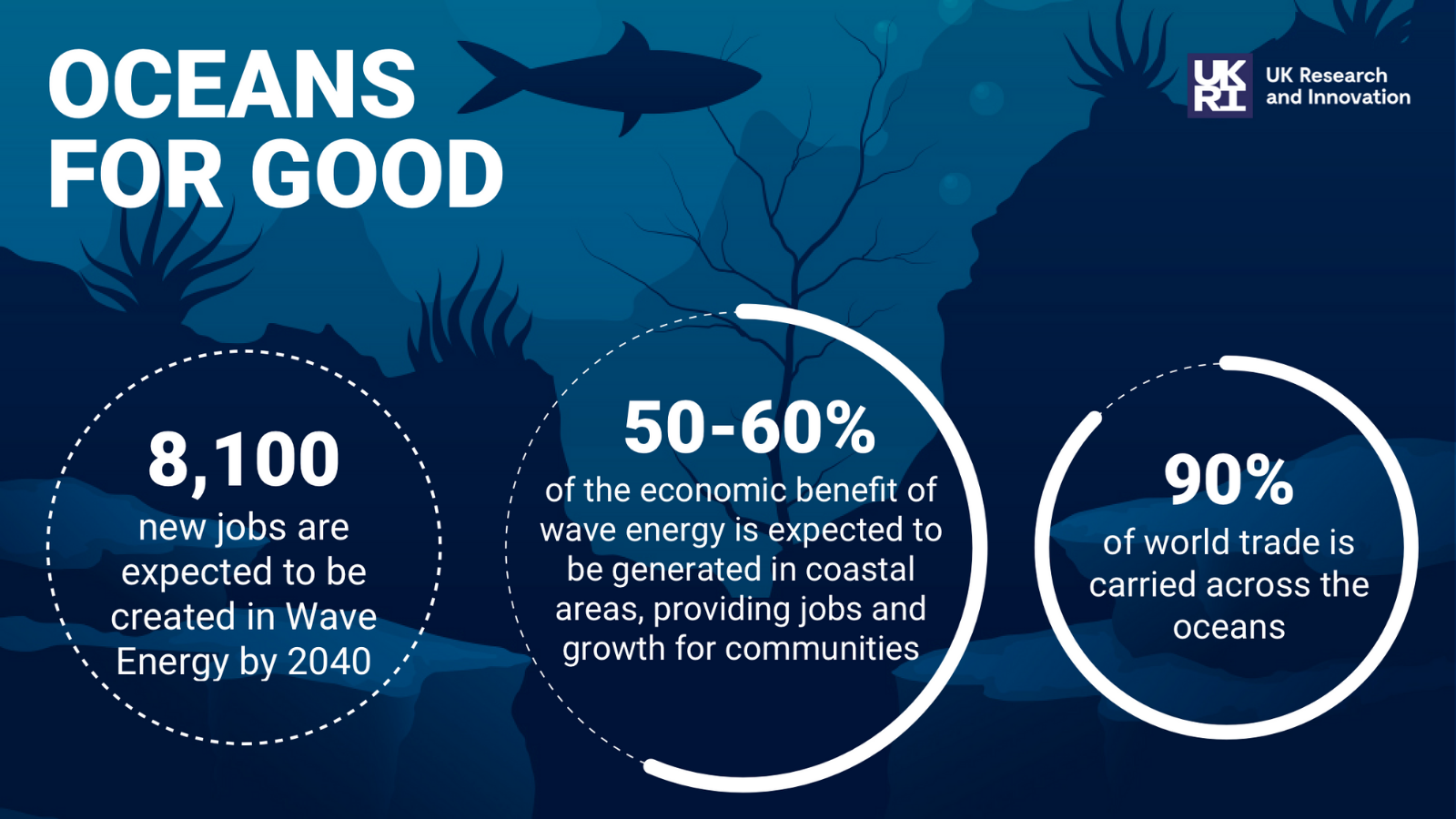Blog: Oceans for Good

The ocean is the planet's most abundant habitat, a place to discover beauty and power, as well as life. It not only serves humans but many other species too, providing a home to more than half of all life on Earth. Oceans are the lifeblood of the planet - playing a vital role in the global carbon cycle, and are responsible for capturing and storing around 25% of the CO2 we release into the atmosphere.
It'll come as no surprise that the oceans have been overwhelmed by the climate crisis. Sea levels are rising; coral reefs are bleaching at alarming rates; and overfishing and pollution from human activity, such as ship waste that ends up in coastal waters, create severe risks to marine life and ocean health.
Thankfully, the sea itself is part of the solution. The world’s oceans are a natural resource that can be harnessed for good, helping to save humanity from itself during this period of rapid global warming.
In time for post-COP26 conversations on climate targets, UK Research and Innovation (UKRI) has produced an Oceans For Good infographic illustrating some of the many benefits and wonders of our blue planet.
The Power of the Ocean in Numbers
The oceans are a wonder to behold and a force for good in the fight against climate change. Some of the key statistics highlighted in the infographic include;
90% of world trade is carried across the oceans
3.5 billion people depend on the ocean as their primary source of food
15% of the UK’s current electricity demand could be delivered by wave energy
30GW of offshore wind capacity could be installed in the UK by 2030
50-60% of the economic benefit of wave energy is expected to be generated in coastal areas, providing jobs and growth for coastal communities
Much of the ocean science data comes from the Wave Energy Innovation Position Paper, written by the Supergen Offshore Renewable Energy Hub, an Engineering and Physical Sciences Research Council (EPSRC) funded-programme that aims to accelerate the development of offshore wind, wave and tidal technology for the benefit of society.
Other statistics derive from the Plymouth Marine Laboratory, a charity that aims to develop and apply innovative marine science to ensure a sustainable future for our ocean.
Shipping and World Trade: Driving Prosperity
The global shipping industry is essential for all aspects of the trade. Ocean-going vessels can carry around 90% of world cargo, with many container ships capable of hauling 24000 TEU's or about 18 million pounds worth per ship. Without the shipping industry, intercontinental trade, the bulk transport of raw materials, and the import/export of affordable food and manufactured goods would not be possible.
The Ocean is a Sustainable Energy-Giver
The oceans cover more than 70% of the Earth's surface, making them one huge natural engine, the world’s largest solar collector and an integral part of our planet’s energy production. The ocean is essentially an immense body that converts movement into mechanical and thermal energies through constant circulation with predictable currents produced by tides and the natural differences in seawater temperatures and salinity.
The ocean has 1000 times more kinetic energy than air particles. With 2000-4000 TWh of wave power available worldwide, it's estimated as much as 80% of our electricity needs could be met by this renewable resource, with zero fuel required.
Aquafuel Ocean Energy & Ocean-Energy Technologies
In recent years, scientists have been able to make advancements in the field of ocean science. With the diversification of new technologies, we can now harness green electricity stored within our oceans; in the form of a wave, tidal and floating underwater turbines. And the development of more efficient thermal generators means that we can convert heat directly into mechanical force without producing any waste byproducts like heat or CO2 for their operation.
Installing these machines will not only continue to produce electricity without pollution for decades but also give an additional boost in other renewable forms such as wind and solar – making our planet cleaner. The oldest Tidal Power station in the world has been producing electricity for over five decades with no expiration date in sight!
The Rise of ‘Blue’ Jobs
The ocean is a source of food, livelihood and economic stability for coastal communities. The Wave and Tidal industries support more than 2,400 jobs in the UK, adding over £6 billion to the British economy, from turbines in Scotland to powerhouses along England's South West coastlines. In addition to the 'blue' jobs created by seaweed farming, 60 million people worldwide work primarily in fishing operations with small-scale productions found mostly within developing countries - all whilst generating energy.
Maritime makes a greater contribution to the UK economy than both rail and air combined. Maritime UK is the umbrella body for the maritime sector, bringing together the shipping, ports, services, engineering and leisure marine industries. Our purpose is to champion and enable a thriving maritime sector.
